Skill Young

What is the impact of sports on the career aspirations of young people ?
Text: The Impact of Sports on the Career Aspirations of Young People Introduction - Sports are integral to society and significantly impact young people's career aspirations. - This article explores both positive and negative aspects of sports' influence on career goals. Positive Impact 1. Development of Key Skills - Teamwork, leadership, perseverance, and other skills developed through sports are beneficial in any career. 2. Increased Confidence and Self-Esteem - Success in sports can boost confidence and self-esteem, making young people more likely to pursue ambitious career goals. 3. Exposure to Diverse Opportunities - Sports open doors to various career paths and scholarships for higher education. Negative Impact 1. Pressure and Burnout - Intense focus on sports achievements can lead to excessive pressure and burnout. 2. Limited Time for Other Activities - Dedication to sports training may leave little time for exploring other interests or developing skills outside of sports. 3. Injury Risks - The risk of injury is always present in sports and can hinder a young person's ability to pursue a sports-related career or affect overall employability. Conclusion - Sports have a profound impact on the career aspirations of young people. - While they offer numerous benefits, it is essential to be aware of potential drawbacks. - Balancing sports involvement with other activities and interests allows young individuals to make informed decisions about their future career paths while enjoying the benefits of sports.
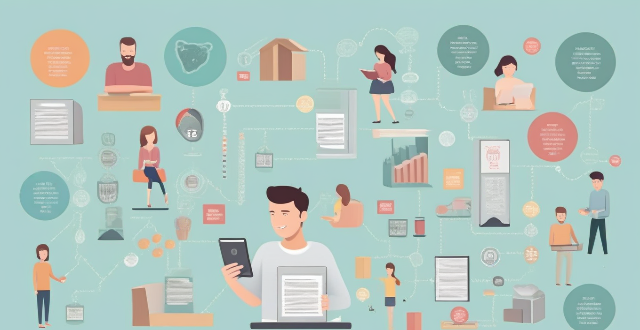
What skills do young people need to effectively participate in climate action ?
The article discusses the various skills that young people need to develop in order to participate effectively in climate action. These skills include scientific literacy, critical thinking, communication, collaboration, advocacy, practical skills, financial literacy, emotional intelligence, and digital literacy. The article emphasizes that having a blend of these skills will enable young people to contribute meaningfully to efforts aimed at mitigating the effects of climate change.
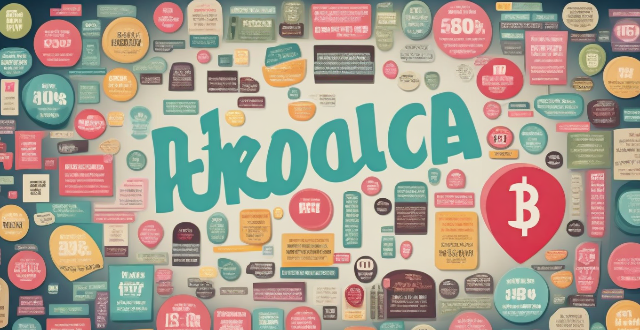
What are some effective methods for teaching financial literacy to young adults ?
Financial literacy is a crucial life skill that every young adult should possess. It involves understanding how to manage money effectively, make informed financial decisions, and plan for the future. Here are some effective methods for teaching financial literacy to young adults: start with the basics, use interactive learning tools, encourage real-world practice, and provide access to financial professionals.

How does sport specialization at a young age impact overall development ?
Sport specialization at a young age can have both positive and negative impacts on a child's overall development. While it allows for skill development, confidence building, and potential opportunities for college scholarships and professional careers, it can also lead to overuse injuries, burnout, limited social interaction, physical development issues, psychological pressure, and narrow life experiences. Parents and coaches are advised to encourage variety in activities, monitor training intensity, promote balance, listen to children's feelings, and seek professional advice to ensure well-rounded development.

How do individual versus team sports impact self-esteem in young people ?
The text discusses the impact of individual versus team sports on self-esteem in young people. It outlines key points such as the focus on personal growth and discipline in individual sports, and the social support and collaboration learned in team sports. The benefits of each type of sport are also highlighted, including increased autonomy and clear feedback from individual sports, and social skills development and resilience from team sports. A comparative analysis is provided, discussing the pros and cons of each type of sport in relation to self-esteem. The conclusion suggests that both types of sports can positively impact self-esteem, but finding the right fit for each individual is crucial.

How do sports movies influence young athletes ?
Sports movies have a significant impact on young athletes, providing motivation, inspiration, and valuable life lessons. They showcase role models who have overcome obstacles, teach the importance of perseverance and resilience, highlight teamwork and leadership, and emphasize dedication and sacrifice. These films also explore mental toughness, enjoyment of the process, and cultural impact while incorporating life lessons such as humility, respect, and integrity. However, it's important for young athletes to be aware that sports movies often present an idealized version of reality and should draw inspiration from these stories while understanding the challenges and setbacks of real-life sports.
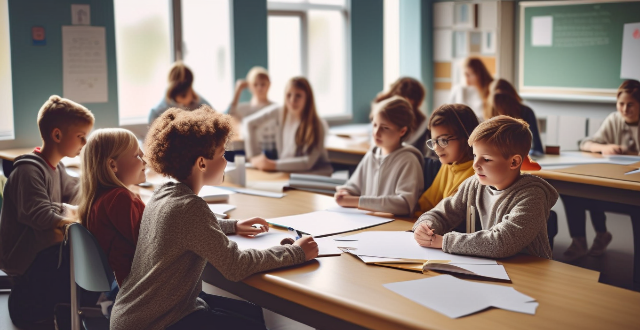
What are the benefits of fostering leadership in students from a young age ?
Fostering leadership in students from a young age has numerous benefits, including enhanced personal development, improved social skills, increased confidence, better academic performance, preparation for future roles, and a positive impact on society. Leadership training helps students develop valuable skills such as decision-making, problem-solving, time management, communication, collaboration, and empathy. These skills are beneficial in academic settings and personal lives, leading to well-liked and respected individuals. Taking on leadership roles also builds confidence and self-esteem, translating into other areas of life, including academic performance and future career prospects. Research shows that students with strong leadership qualities tend to perform better academically due to effective study habits, time management skills, and a strong work ethic. Fostering leadership prepares students for future roles in the workplace, community organizations, and political arenas, setting them up for success later in life. Developing strong leaders from a young age creates an engaged and active citizenry capable of addressing complex issues and working towards positive change.

Can nutrition affect an athlete's skill level ?
Nutrition is vital for athletes' overall well-being and performance, including skill enhancement, recovery, and injury prevention. It affects cognitive function, physical performance, and recovery, ultimately influencing an athlete's skill level. A balanced diet with proper nutrients can help athletes reach their full potential and succeed in their sports.
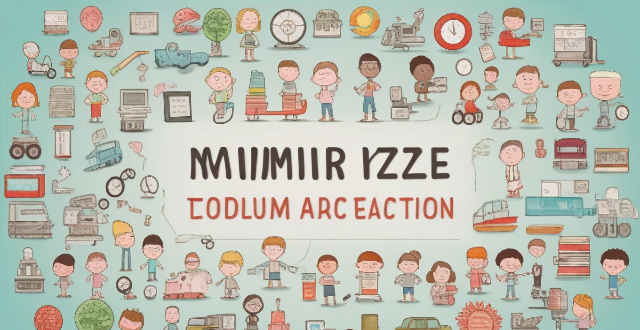
What challenges do young people face when trying to participate in climate action ?
The text summarizes the challenges faced by young people in climate action. These include a lack of awareness and education, limited resources and opportunities, social and political barriers, emotional and psychological challenges, and practical difficulties. Despite these obstacles, it is crucial for young individuals to engage in climate action to create positive changes and contribute to a more sustainable future.

Can playing multiple sports help in skill development ?
Participation in multiple sports can enhance overall athleticism and skill development by improving physical attributes, reducing injury risk, developing transferable skills, and promoting mental toughness. It also offers social benefits such as expanded networks and increased opportunities for exposure. While specialization has its advantages, playing multiple sports can help athletes become well-rounded competitors.

How important is rest and recovery in skill enhancement ?
The text discusses the importance of rest and recovery in the process of skill enhancement. It highlights the cognitive and physical benefits of taking breaks, such as improved mental clarity, memory consolidation, muscle recovery, and injury prevention. The practical implications include avoiding burnout, enhancing performance, and strategies for incorporating rest into practice schedules. Overall, the text emphasizes that rest is a crucial component of long-term skill development and should be given equal consideration alongside deliberate practice and training regimens.

What are some effective strategies for teaching climate change to young children ?
Teaching climate change to young children can be a daunting task, but it is crucial to help them understand the impact of their actions on the environment. Here are some effective strategies for teaching climate change to young children: Start with simple explanations, use visual aids, encourage hands-on learning, involve them in environmental activities, use storytelling, discuss solutions, make it relevant to their lives, and encourage critical thinking.

How can young people balance their education and involvement in climate action ?
Balancing education and involvement in climate action is crucial for young people. Effective strategies include time management, goal setting, and seeking support from peers and mentors. By prioritizing tasks, breaking down goals into smaller steps, and celebrating milestones, young people can achieve a balance between their education and involvement in climate action initiatives. Joining a community of like-minded individuals, finding a mentor, and collaborating with peers can also provide valuable support and opportunities for growth. With these strategies, young people can make a positive impact on the environment while achieving their educational goals.

How can team sports help in individual skill development ?
Team sports contribute significantly to individual skill development by improving communication skills, enhancing leadership abilities, increasing self-confidence, bettering time management, improving social skills, promoting physical fitness and coordination, providing opportunities to learn from mistakes, and fostering adaptability.

What are the most effective ways to engage young people in climate science communication ?
Engaging young people in climate science communication is crucial for creating a sustainable future. Here are some effective ways to do so: 1. Use interactive and engaging methods such as gaming and simulations, visualization tools, and interactive workshops to make complex climate concepts more accessible and fun to learn. 2. Involve young people in the process by involving them in participatory research, citizen science projects, and advocacy and activism to increase their ownership and interest in climate science. 3. Make it relevant to their lives by providing localized information, discussing career opportunities, and sharing personal stories to help young people understand the impact of climate change on their lives and communities. By using these strategies, we can inspire the next generation of climate leaders and create a more sustainable future for all.
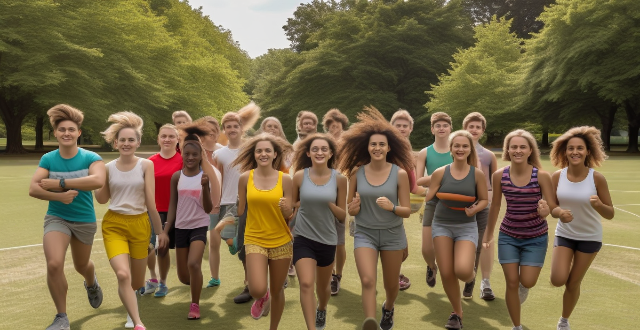
How can we encourage more young people to participate in sports for peace initiatives ?
Encouraging young people to participate in sports for peace initiatives involves raising awareness, creating accessible opportunities, developing leadership skills, and celebrating achievements. This can be done through education, publicity, role models, inclusive sports programs, partnerships, funding, training workshops, volunteer opportunities, recognition awards, and community celebrations.
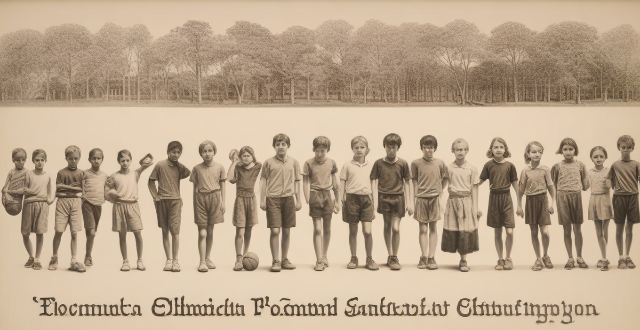
In what ways can we promote gender equality in sports for young children ?
Gender equality in sports is crucial for fairness and respect, especially among young children. To promote this, mixed-gender teams should be encouraged, equal opportunities provided, non-binary athletes supported, coaches and parents educated about gender equality, diversity celebrated, gender bias addressed, and safe spaces created for all athletes.
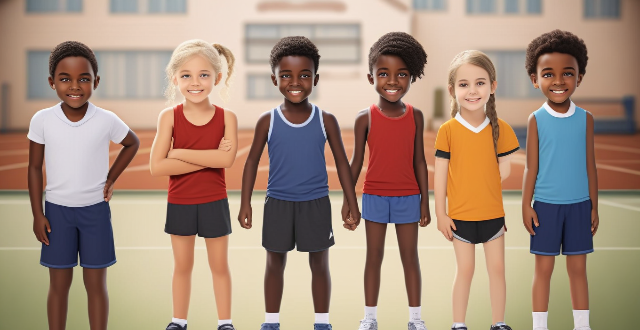
How do sports movies affect the recruitment and retention of young athletes in various sports ?
Sports movies have a significant impact on the recruitment and retention of young athletes in various sports. They inspire young people to take up sports, provide role models for them to look up to, and expose them to new sports they may not have considered before. Sports movies also help retain young athletes by providing motivation during tough times, building a sense of community among athletes, and helping them set goals for themselves. As such, sports movies should be considered an important tool for promoting youth sports participation and development.

How do I choose a tennis training camp that fits my skill level ?
Choosing a tennis training camp that fits your skill level can significantly improve your game. Here are some tips on how to select the right camp: 1. Assess your current skill level by considering your experience, strengths and weaknesses, and fitness level. 2. Research different camps that offer programs specifically designed for your skill level using online directories, social media groups, and reviews from previous attendees. 3. Check the coaches' qualifications and experience, including their credentials, coaching philosophy, and track record of working with players at your skill level. 4. Consider the quality of the camp's facilities and amenities, such as well-maintained courts, access to equipment, and onsite amenities like locker rooms and dining areas. 5. Evaluate the camp's reputation and success rate by reading reviews, asking for referrals, and contacting the camp directly to learn more about their success stories.

Is speed reading a natural ability or a skill that can be learned ?
Speed reading is a topic of interest for many individuals who wish to improve their reading efficiency and comprehension. The question arises whether speed reading is a natural ability that some people possess, or if it is a skill that can be learned and developed through practice and training. While there may be some individuals who possess a natural ability for speed reading, it is generally accepted that speed reading is a skill that can be learned and improved upon through practice and training. By employing specific techniques and strategies, anyone can enhance their reading speed and comprehension, ultimately increasing their productivity and knowledge acquisition.

What are the benefits of youth participation in climate change initiatives ?
Youth participation in climate change initiatives is crucial for several reasons. Here are some of the benefits: ### 1\. **Education and Awareness** - **Increased Knowledge:** Young people who participate in climate change initiatives gain a deeper understanding of the science behind climate change, its causes, and potential solutions. This knowledge can be used to make informed decisions about their own lives and advocate for change in their communities. - **Awareness of Environmental Issues:** Through participation, youth become more aware of environmental issues such as deforestation, pollution, and biodiversity loss. This awareness can lead to lifestyle changes that reduce their carbon footprint and inspire others to do the same. ### 2\. **Skill Development** - **Leadership Skills:** Participating in climate change initiatives often involves working with teams, planning events, and advocating for change. These experiences help young people develop leadership skills that will be valuable throughout their lives. - **Communication Skills:** Climate change initiatives require effective communication to raise awareness, share information, and persuade others to take action. Participating in these initiatives helps young people develop strong communication skills that will benefit them in all areas of life. ### 3\. **Policy Influence** - **Voices Heard:** Young people represent a significant portion of the population and have unique perspectives on climate change issues. By participating in initiatives, they can ensure that their voices are heard by policymakers and influence policies related to climate change. - **Advocacy Efforts:** Youth involvement in climate change initiatives often includes advocacy efforts aimed at convincing governments and businesses to adopt more sustainable practices. These efforts can lead to real change on a local, national, or even global level. ### 4\. **Personal Growth** - **Sense of Purpose:** Participating in climate change initiatives can give young people a sense of purpose and motivation to make positive changes in the world around them. This sense of purpose can lead to greater satisfaction with life and increased mental well-being. - **Confidence Building:** Successfully participating in climate change initiatives can build confidence and self-esteem by showing young people that they have the power to create positive change in their communities and beyond. ### 5\. **Networking Opportunities** - **Connections with Like-Minded Individuals:** Participating in climate change initiatives provides opportunities for young people to connect with others who share their passion for environmental protection and sustainability. These connections can lead to lasting friendships, collaborations, and professional opportunities down the line. - **Mentorship Opportunities:** Many climate change initiatives involve working alongside experienced professionals who can serve as mentors and provide guidance on career paths related to environmental protection and sustainability.

Are tennis training camps effective for children and teenagers ?
Tennis training camps can be an effective way for children and teenagers to improve their skills and develop a love for the sport, depending on factors such as quality of instruction, level of commitment, and overall environment. Benefits include skill development, learning new techniques, building confidence, and socializing with other young players.
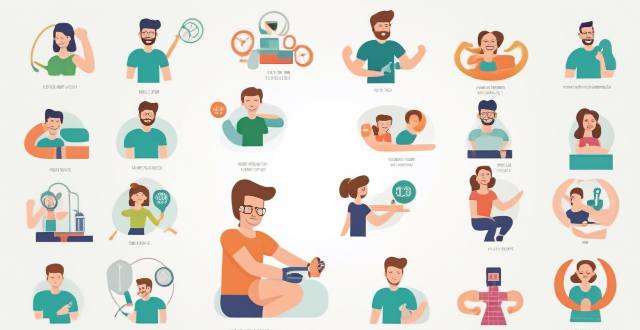
What impact does sports culture have on youth development ?
The article discusses the impact of sports culture on youth development, highlighting its benefits in physical health, mental well-being, social skills, and emotional growth. Participating in sports activities helps young people improve their fitness levels, motor skills, self-esteem, stress management, teamwork, leadership skills, cultural exchange, resilience, goal setting, and achievement. Encouraging young people to participate in sports can help them become well-rounded individuals who are better prepared for adulthood.
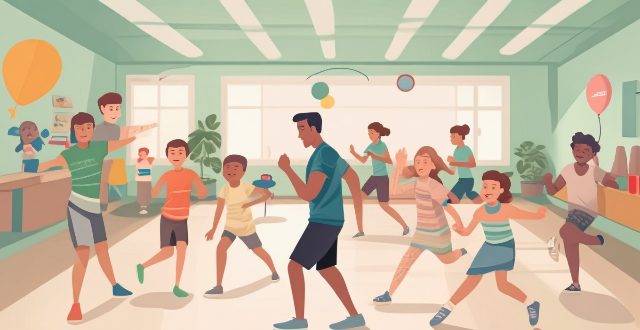
What types of sports are best for promoting motor skills in young children ?
This article explores the importance of motor skills in children's development and highlights four sports—soccer, gymnastics, swimming, and dance—that effectively promote these skills. Each sport offers unique benefits, including improved gross and fine motor skills, coordination, balance, strength, flexibility, and emotional development. Engaging young children in these activities can significantly contribute to their overall growth and well-being.
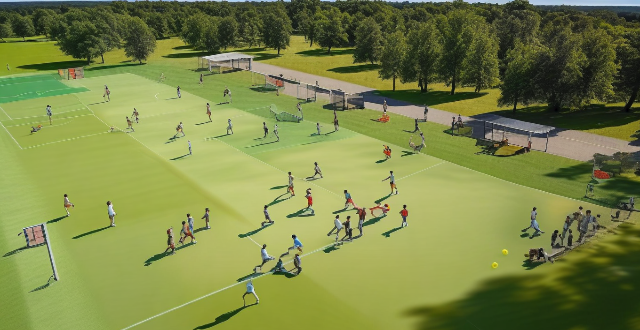
What is the influence of sports on leadership skills development among adolescents ?
This article discusses the influence of sports on leadership skills development among adolescents. It highlights the importance of leadership skills and how sports can contribute to their development through communication, problem-solving, decision-making, teamwork, and self-motivation. The article concludes that sports have a significant impact on the development of essential leadership qualities that are important for success in various aspects of life.

How can young people get involved in climate action ?
Young people can get involved in climate action by educating themselves, joining youth organizations, advocating for change, taking local action, volunteering, and supporting sustainable businesses.